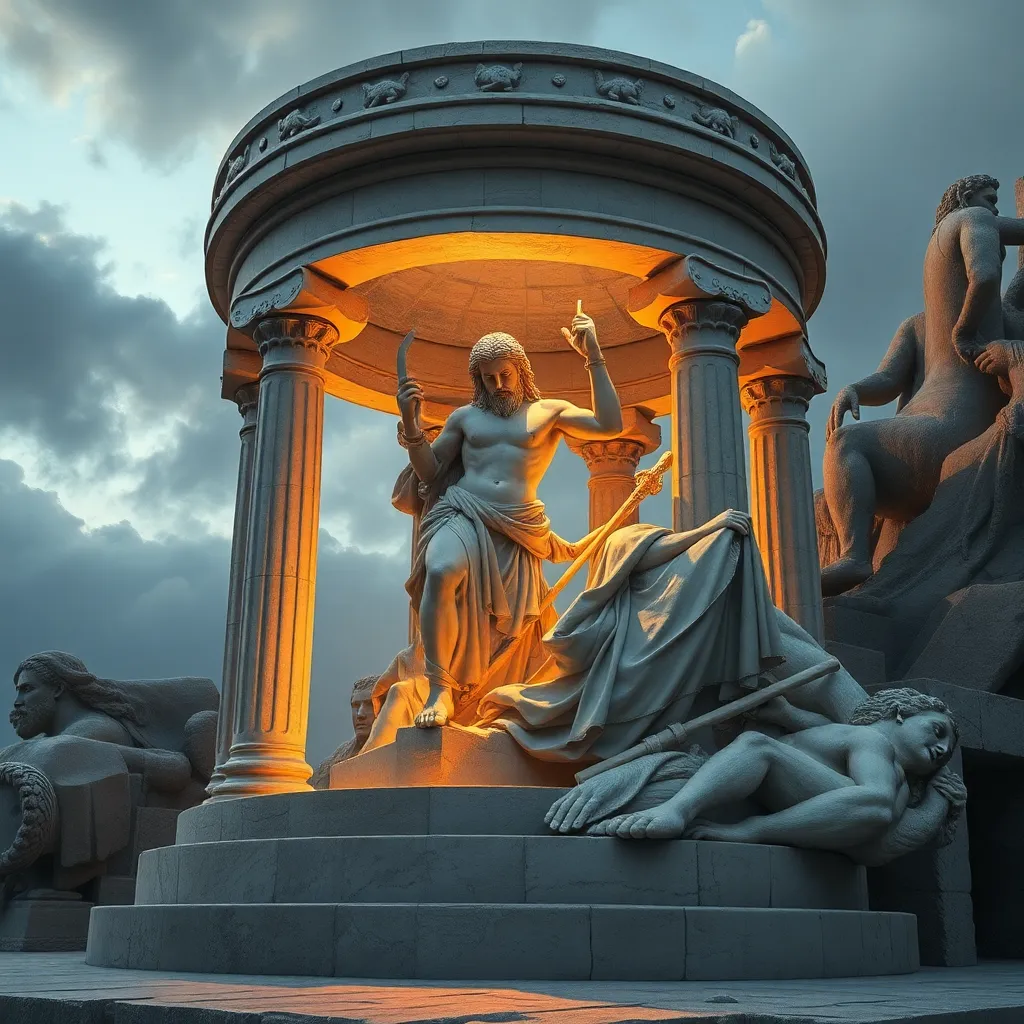The Legacy of Theseus in Contemporary Literature
I. Introduction
Theseus, the legendary hero of ancient Greek mythology, stands as a symbol of bravery, intelligence, and the complexities of human nature. Often recognized for his epic quests and formidable challenges, Theseus embodies the quintessential hero archetype that has resonated through centuries of storytelling. In ancient Greek culture, Theseus was not only a mythological figure but also a cultural icon representing the ideals of heroism and civic responsibility.
This article aims to explore the enduring influence of Theseus in contemporary literary works, examining how this mythological figure has shaped modern narratives and characterizations, and how themes surrounding identity and transformation continue to resonate in today’s literature.
II. The Myth of Theseus: A Brief Recap
The story of Theseus is rich with significant events that highlight his heroic nature:
- Birth and Early Life: Born to Aegeus, the king of Athens, and Aethra, Theseus was destined for greatness from the moment of his birth.
- Defeating the Bandits: As he traveled to Athens, Theseus encountered and defeated various bandits, showcasing his strength and bravery.
- The Minotaur and the Labyrinth: Perhaps his most famous adventure, Theseus volunteered to enter the labyrinth of King Minos to slay the Minotaur and save the youth of Athens.
- Return to Athens: After his triumphant return, he became a celebrated hero, eventually taking his place as the king of Athens.
Themes such as heroism, sacrifice, and identity are woven throughout Theseus’s myth. The Minotaur represents the chaos and savagery that lurks within humanity, while the labyrinth symbolizes the complex journey of self-discovery and the challenges one must face to attain greatness.
III. Archetypal Hero: Theseus in Modern Characterization
In contemporary literature, the archetype of the hero has evolved, yet the essence of Theseus continues to influence modern characterization:
- Heroic Traits: Characters inspired by Theseus often exhibit courage, resourcefulness, and a moral compass that guides their actions.
- Complex Journeys: Much like Theseus’s journey through the labyrinth, modern heroes face intricate challenges that test their resolve and identity.
Examples of characters influenced by Theseus include:
- Harry Potter: Harry’s journey parallels that of Theseus, from an uncertain boy to a hero facing the monstrous Voldemort.
- Katniss Everdeen: In “The Hunger Games”, Katniss embodies the spirit of Theseus as she confronts a brutal society to save her people.
The hero’s journey remains a dominant narrative structure in modern storytelling, echoing the trials and triumphs of Theseus.
IV. Theseus and the Themes of Identity and Transformation
Identity crises and transformations are central themes in contemporary literature, often depicted through characters who face profound challenges:
- Identity Exploration: Characters often grapple with their sense of self, reflecting Theseus’s journey of self-discovery.
- Transformation Motif: The idea of transformation resonates deeply, as many characters undergo significant changes in response to their experiences.
Case studies of novels that illustrate these themes include:
- “The Perks of Being a Wallflower” by Stephen Chbosky: Charlie’s journey of self-discovery reflects the labyrinthine paths of identity and belonging.
- “The Catcher in the Rye” by J.D. Salinger: Holden Caulfield’s struggle with identity mirrors Theseus’s own challenges in defining himself amidst chaos.
V. Intertextuality: References to Theseus in Contemporary Works
Intertextuality enriches literature by creating connections between texts, and Theseus serves as a potent reference point:
- Direct References: Many authors explicitly reference Theseus in their works, often drawing parallels between their characters and the hero’s journey.
- Indirect References: Themes of sacrifice, bravery, and navigating complex moral landscapes often echo Theseus’s narrative without direct mention.
These references enhance themes and narratives by providing depth and context, allowing readers to engage with the timeless qualities of the hero’s journey.
VI. Theseus in Popular Culture: Beyond Literature
The influence of Theseus extends beyond literature into film, theater, and visual arts:
- Film Adaptations: Movies like “Clash of the Titans” and “Percy Jackson & The Olympians” draw upon Theseus’s legacy to create modern heroes.
- Theatrical Productions: Plays such as “Medea” often reference Theseus, exploring themes of power and betrayal in the context of heroism.
- Visual Arts: Artists have depicted Theseus in various forms, symbolizing the eternal struggle between order and chaos.
Comparative analyses reveal both literary and pop culture interpretations of Theseus, highlighting his relevance in discussions of modern heroism.
VII. Critical Perspectives on the Legacy of Theseus
Scholarly interpretations of Theseus in contemporary literature reveal diverse perspectives:
- Feminist Readings: Critics explore the implications of Theseus’s relationships with female characters, questioning traditional narratives of heroism.
- Evolution of Legacy: The legacy of Theseus has evolved in literary criticism, with discussions focusing on the complexities of heroism in a modern context.
These critical perspectives help to reshape our understanding of Theseus and his impact on contemporary narratives.
VIII. Conclusion
In summary, the exploration of Theseus’s legacy reveals his profound influence on contemporary literature and storytelling. From his archetypal heroism to the themes of identity and transformation, Theseus remains a vital figure that continues to inspire and shape modern narratives. As literature evolves, the implications of Theseus’s journey will undoubtedly persist, offering rich avenues for future exploration and interpretation.
Ultimately, Theseus serves as a reminder of the timeless nature of heroism and the enduring quest for identity that resonates across generations.




